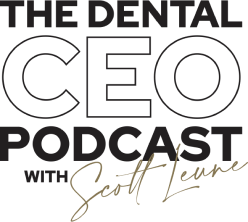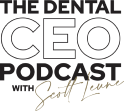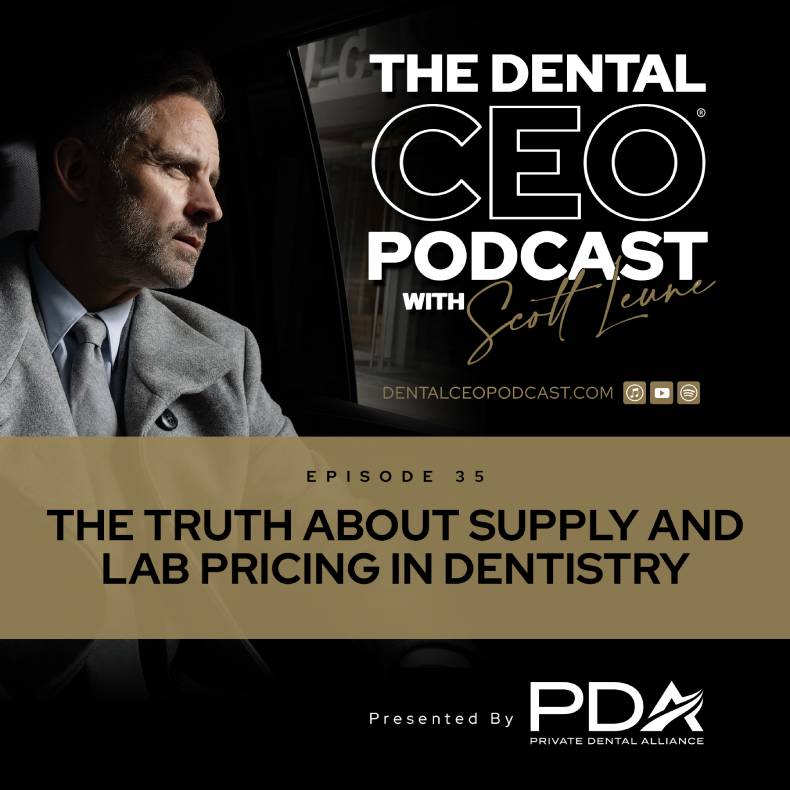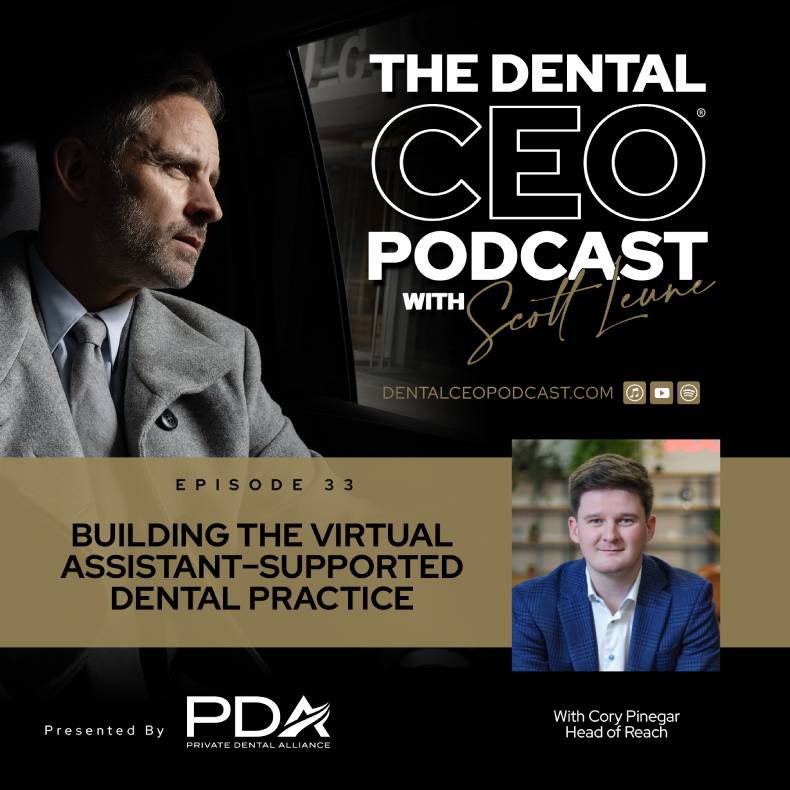Dental CEO Podcast #30 – Does Dentistry Still Make Sense as a Career?
In this episode of the Dental CEO podcast, host Scott dives deep into the challenges and opportunities facing today’s dentists. From the financial pressures of student debt to the limitations of working as an associate, Scott explores the critical question: Is it worth it to become a dentist today? Scott also shares a candid perspective on the value of ownership vs. associateship in dentistry.
Highlights
- Challenges for Associate Dentists: A discussion on the difficulties faced by associate dentists, including lack of autonomy, high stress, and limited financial growth compared to practice owners
- Benefits of Practice Ownership: Ownership vs associateship and how owning a dental practice offers more control, financial benefits, and personal fulfillment compared to being an associate
- Advice for Dental Practice Owners: Advice for current practice owners on how to better support their associate dentists to reduce turnover and improve job satisfaction.
Speakers
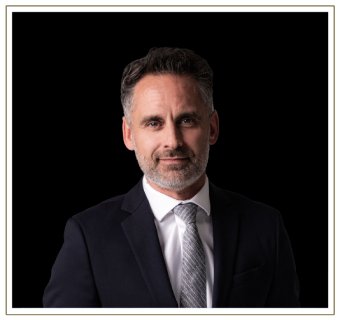
Dr. Scott Leune
Scott Leune, known as The Dental CEO, is one of the most respected voices in dental practice management. From his seminar room alone, he has helped launch over 2,000 dental startups and supported more than 20,000 dentists across practices worldwide. Named one of the 30 Most Influential People in Dentistry, Leune delivers practical, no-fluff strategies that empower dentists to lead with confidence, scale efficiently, and achieve real personal and financial success.
Watch Episode
Read Full Transcript
Scott Leune: So the age old question that gets asked of dentist, would you tell your kid to go to dental school or not? That question bounces around social media and we talk about it every now and then, but it got real for me because my daughter leaves next week for college, my oldest child, I've got also a 16-year-old that is talking about what he wants to do. I've got a 13 year old's talking about what he wants to do and it's getting very real for me and it caused me to now go back to that question. Would I tell my kid to be a dentist? And I think I've actually got some different answers now and that is what I want to dive into. What is it like today? What are the challenges that we face as associate dentist? What is it like as an owner dentist? Is it even freaking worth it anymore? We are going to dive into that and I am going to talk about how to make it worth it as well on the next episode here of the Dental CEO podcast.
Alright, so would I tell my kids to be a dentist? My answer would be yes, but only if you do this. Yes, be a dentist, but only if you do it this way. And so we'll get there, we'll get to my completion of that answer, but let's just go through some topics that are really impacting the dentist today. So obviously the number one topic that comes up on a lot of people's conversations about this is the debt levels student debt. We pulled a report I posted on social media, not that a few months ago that showed the most expensive degrees out there and it was insane. Something like the top eight were different dental degrees. This is something like this, something crazy. Dentist was number 1, 2, 3, 4, 5, 6, 7, 8, the different types of dental degrees. And so debt levels have never been this high and they're higher to be a dentist than anything else on average that you could go and learn in school.
So that's obviously a problem, but what makes that a little worse is that the income levels that you have as an associate dentist have pretty much remained flat. They've gone up a little bit, they've gone down some years, but nothing significant. So what we have is we've got this increasing debt, but this kind of flat income. And so now that debt to income ratio is starting to be ridiculous. It's not making sense and it doesn't look that way necessarily for owners, dentists that own practices are getting of course on average, much higher income and of course some tax benefits as well. And there's life benefits too. There's also life stresses and risks and liabilities. But when you look at the owner dentist, it's a different conversation than when you look at the associate dentist. So right off the bat I would say would I tell my kid to be a dentist if they were going to be an associate?
Absolutely not. I'd say I would not recommend being an associate dentist. Now, why are dentist associates? Why don't associate dentists jump out of ASSOCIATESHIPS and go straight into ownership? There's a lot of excuses for that. I don't know if I'd call the excuses real reasons, but there's a lot of excuses. Of course. One excuse is I can't find a practice to buy. Well, that's actually not true. There are practices for sale all over the place if you're willing to be the top bidder for them. I also hear, well, I don't want to start a practice because I don't think my area could support it or it's too risky. Well, from what we do every day in my companies, I've never seen it so good to start practice On another podcast episode, I actually called it the golden Age of startups right now, I have not met a single metropolitan area that couldn't support a plethora of startups today.
So between this golden age of building a startup and being able to buy practices that are currently for sale, assuming you're willing to offer enough, you could definitely be an owner. Those aren't reasons you can't be an owner. Those are just excuses for you to have not gone into ownership yet. What I also see is dentists come out of school and for the most part, their skillset isn't as strong, comparatively speaking as it used to be because decades ago when you got out of school, there were a lot less types of procedures to do bread and butter dentistry was a much bigger percentage of dentistry. Today we've got this whole implant path that of course has happened that has also not just led to placing single implants, but all the way to doing full arch dentistry. We've got technology that is enabling general dentists to be better and better and lower the barrier to entry to doing all kinds of specialty procedures, ino, ortho, para surgeries, so forth. So what happens now is when a dentist gets out of school, the baseline level of knowledge they have is not enough to be competent or proficient at a lot of the types of dentistry that needs to be done. And so that has resulted in almost like this, I'm going to be an associate because I still need to learn situation. It's also resulted in more dentists going into I think a higher demand for GPRs and AGDs. So we're having that happen. So I go to dental schools as a dental student and I get the most debt of anyone ever in dentistry and of all school. And I get out and I feel like I need to work for someone to perfect my skills to further my skills. And so I go work for someone, which is the lowest income way to do this. And now my debt to income levels don't make a lot of sense.
On top of that, on paper, I am still in a reasonably high tax bracket. So I have high debt payments, but I have higher income than a lot of jobs out there. So I have to pay a lot of taxes and I've got to pay also these silent taxes like you make a few clicks to renew your license and boom, seven grand of a cost to do that. So financially speaking, there's a ton of pressure there. Now, what is it like to actually be the dentist? Well, if I'm working as an associate, I lack the autonomy to change things about the business. I'm an associate, I can't make those decisions. I didn't even get business training or leadership training in school. So I don't even feel confident in my own ability to lead this organization, but I don't even have the choice to make the decisions about it.
Even if I was a good leader, even if I was a good business person, if I'm an associate, I can't really make those decisions. And what's it like to work on the schedule of an associateship? Usually the schedule is a high stress type of scheduling for the associate dentist that the associate didn't pick and the associate can't change. If they were the owner of the practice, they could change things more readily, but they can't change. So we've got this high stress scheduling. We've got a team that the associate didn't pick. I'm working in a facility I didn't design and I'm using technology. I didn't pick are business systems I didn't, I don't necessarily agree with. And on top of that, I'm in a way being forced to be in network with PPO plans that I may not want to be in network with. I'm forced to have this kind of participation in low fee dentistry and as I'm in that environment, not making enough money to be wealthy and to pay down my debt, not having a lot of growth in my skills, being taxed at the highest rate, having all this kind of stress on top of that, I just don't feel like I'm growing professionally as an associate dentist.
It can feel very often that we're kind of stuck in a rut that we aren't having this growth of wealth, we're not having this growth of clinical skill, we're not having the growth of connection and happiness with our career because we're stuck in someone else's vision. Someone else gets the financial growth, someone else is getting their growth of their vision, of their happiness of their career. We're stuck in it working as an associate dentist and that causes us to potentially have this disconnect between what our associateship is our job is and what we actually desire for our career. There's this disconnect, there's a gap. And when we have that gap and we have hard days, that feels like stress, like burnout, like being overwhelmed. If we didn't have the gap, if our dentistry and our career, it was all aligned with what we wanted in our vision, we own the and we're building something for the long-term for our family to build wealth and it's the team we picked and it's the systems we want and it's the technology that makes sense for us and the facility that we love.
And now we have a hard day. That difficulty can feel like passion or at least that difficulty is for the right bigger vision or the bigger purpose. So having an associateship is literally, in my opinion, the worst case scenario for ourselves. Something I've said in the past is when you think about the risk and you think about worst case scenario of owning a practice, what's the worst thing that could happen in owning a practice? Many times people will say, well, it fails and I have to sell it. And my comment to that is, okay, then what would you do if it failed and you had to sell the practice? Well, I'd be an associate. Exactly. You're literally, if you're an associate right now, you might be literally living your worst case scenario. You might be thinking and accepting and just continuing worst case scenario because if you go do something different and you go be an owner and you try to align your career better with what you want in life, the dentistry you want, the people you want to be with, the money you want to make, if that doesn't work out, the worst case scenario is you'll fall back and do what you do right now.
You're literally every day doing worst case scenario in your career and we've normalized it. I think that of course for some dentists, they want to be an associateship, they want to be an associate that it makes sense for a variety of reasons for them, for their life, for their desires. And I'm not talking to them right now. I'm talking to everyone else where the associateship doesn't give 'em the autonomy they want, the types of dentistry they want to do, the people they want to work with, and ultimately it doesn't help them build the wealth they need to build, especially in an environment where our debt is so freaking high, especially in that environment, we should be passionately building wealth in an ethical way, doing great dentistry. We should passionately build wealth in an ethical way doing great dentistry. And let me add in an environment we enjoy and so is an associateship building wealth passionately is an associateship.
The most ethical way you can be a dentist is an associateship allowing you to do the dentistry you want to do and is it allowing you to have a great environment if one of those four things is broken, we need to change. If we're not building wealth, if it's not an ethical situation, if it's not the kind of dentistry we want to do and if it's not around the kind of people we want to be around that work environment, if one of those four things are broken, we need to move on because we always have the option to get to choose those four things as an owner. So back to the question, dad, should I be a dentist? That question my answer is, if you are going to be an owner where you get to control your schedule and you get to decide how you're going to be doing the dentistry and what kind of people you're going to be working with and how much money you're going to make in that situation, I think it makes sense to be a dentist. But if you are going to give up those things and just be a dental version of a Walgreens pharmacist, I don't think it makes sense to go into that kind of debt and spend that kind of time and heartache in school only to get out and not have control over the things that are going to bring you potentially fulfillment.
This lack of a work schedule, money control, right, is a really difficult thing to deal with. I think a lot of us chose dentistry of course to make money. We want to be in a situation where we get to build wealth for our family. Maybe it's not the thing that makes the most money of everything we could do, but one reason why we chose dentistry is it met the money requirement. I think it's safe to say that, but another reason why we may have chosen dentistry is we wanted to be able to have some flexibility in our schedule in our day, in our kind of work week, we wanted to be able to be with the kids more if that made sense during a phase of our career or work even more if we wanted to work more or maybe not have to work super late, we went into dentistry because we didn't want to have to work until 8:00 PM or at least we would have the choice.
When we're an associateship, a lot of those choices go away. And it's unfortunate that I think a lot of young dentists or dental students are influenced by professors telling them in school, go work for A DSO, get your speed up, pay down some debt. What bullshit that is Work for A DSO to get your speed up and pay down some debt. The fastest way to pay down debt is to make more money. And you don't do that working as an associate in A DSO, not on average and get your speed up as a new dentist. You don't need to get your speed up. You need to do great dentistry, but you don't have to do it quickly. Speed only matters really if you're trying to make more money and your schedule's already full, what's a young dentist doing? Their schedule's not already full and they're not trying to squeeze an extra cent out of the day.
They don't need to get their speed up. They need to do great work and they need to understand how doing great work happens in an environment that they can sustain for the rest of their career. Getting their speed up is probably going to hurt the great work part of this and it's probably going to hurt the environment, the sustainable environment part of this. So it's really bad advice. Work for A DSO, get your speed up and pay down some debt. Nope, we don't need to get our speed up. We need to do great dentistry. We need to learn how to be a great leader, a great communicator, get great case acceptance. We have to learn how to diagnose well. We have to learn as many specialty procedures as we can. That makes sense for us. We have to be a great clinician and we need to build wealth and usually we don't get those things when we're an associate somewhere.
So if you're an associate dentist listening to this, I hope for someone listening to this, this is the wake up call that says, Hey, maybe now's the right time to start that next chapter in your career. The chapter that gets closer to where you want to be, the chapter that says you can have more money in a better practice doing dentistry you love with the people you picked in a schedule that's flexible. What a powerful sentence I just said. When you really think about the words I just said, what a powerful sentence that could be. Now some of you are already owners, right? You're listening to this, you're already an owner. This could be a reminder for you that couple things. Number one, all the pain and crap that come with owning that can make us also sometimes feel burnout. Let's be reminded to put that into perspective of why that might still be the right decision, that life could look a lot different and not be well aligned with our vision if we're making a lot less money and have a lot less control.
So it, it's hard to be an associate, it's hard to be an owner. I'm trying to make the argument that for a lot of us, the hardship of the ownership is worth it, but hardships on the associate side are not right. So that's one thing to think about as an owner. But another thing to think about is if you have associate dentists, we need to be connected with the hardships of that. They're not making as much money as they could if they worked for someone else or they worked for themselves, excuse me. They don't have the people around them that they chose and the software they chose and the facility they chose. So we as owners need to be very sensitive to that and try to optimize as many of those things so that associate who we don't want to lose is going to have a better work environment, making more money with people they like doing the dentistry they want to do.
We need to try to provide as much of that as we can as owners so that we will lose less dentists and we will have happier and better performing dentists. That means we need to have a CE budget in place for associates. We need to give them, say on the people they work with. We need to include them in the decision making in the practice. We need to give them as much clinical autonomy as makes sense. We can't give 'em everything. They're not the owner, we're the owner, but we need to do our best to give as much as we can while still maintaining, of course a healthy business. If all you do is hire an associate and basically control their schedule, their people, their technology, their dentistry, then you're going to have a worse turnover issue with associates than if you didn't. And I think that this can also be a reminder of that.
So my daughter's leaving for college. She got recruited into a really good school for musical theater. My daughter wants to be on Broadway singing and dancing and acting on stage. She's not asking me should I be a dentist, she wants to be on stage. I've got a son who isn't sure if he even wants to go to college and he's got all kinds of things in his mind about what he might do. I've got another son, a younger 13-year-old who's in the same position and then my two youngest kids are still too young to probably be thinking about this. But I think as I sit here today on this podcast episode, I would tell my kids that there's so much value in life When you can control and change the things that matter you control and change how much you make, you can control and change what days or what hours you work or what kind of work you do or the kind of people you work with or the tools you use.
There's so much value being able to change those things as your life changes as well. And of course, at the end of the day, you got to be happy with doing what you do. But happy doesn't mean you love every aspect of the work. Happy means that what you do is in alignment with your life so that you're living the life you want to live in part because of what you're doing. And I believe that being a practice owner is likely the only thing I could label today. The only kind of model in dentistry right now I could label today if I'm honest with my kids and say, that still makes sense because when you're an owner, you're making the most wealth you can in dentistry within reason, which might not mean make more money, it might just mean work less time. If you have more wealth per hour you put in, you could just decide to keep the money the same but work less hours.
But being an owner is going to give us the most money, it's going to give us the most control to keep changing things in life as you have or as one of my kids has their own kids or as they go through a medical hardship or as they're at their prime and they have energy and drive and they want to do something big and some big vision. Being an owner removes a whole lot of barriers to that. But being an associate, oh my god, that's a trap for a lot of us. That's a trap. That's a trap of mediocrity that we may not ever get out of because it's just too easy to keep doing it that way even though we're not fulfilled and we're not happy. Alright, I hope I didn't upset too many people on this episode, but I guess it's where I am right now with watching my daughter leave for college, my oldest child leave for college.
I felt like answering the question, should we tell our kids to be dentists? I think it's a good question to ask. It's a reminder of what makes sense in dentistry for us individually. And let me end this episode with this kind of one statement. If what you're doing right now in dentistry would not be what you tell your kids to do, why the hell are you still doing it right? If how you're doing it today, whether that's being an owner or not, if what you're doing in dentistry today is not what you would want for your kids, why the hell haven't you changed and made it better? I just want to leave you with that. Thank you so much for tuning in and I will see you next time. My name's Scott Leune and this is the Dental CEO podcast.
SUBSCRIBE TODAY
Subscribe now and receive a 25% discount code for Scott Leune’s upcoming events. Plus, get podcast episode alerts and exclusive subscriber perks.
